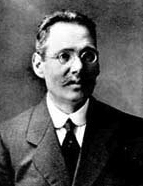

As a result of his competence, work and knowledge, he was the author of a numerous bibliography in which his originality and historical and philological rigour are highlighted. He published numerous unpublished sources (many of them in Arabic), where he demonstrated his critical ability and sound argumentation, which remain valid today. Some of his works were published by the Lisbon Academy of Sciences between 1910 and 1911, such as the aforementioned Os árabes na obra de Alexandre Herculano, which included several translated and annotated texts. In addition to history and sources for the study of the Arab presence in Portugal, the author also investigated the origin of various place names of Arabic origin, gaining the approval of other specialists of his time. This research was resumed in 1968, when most of the scattered articles were published by José Pedro Machado under the title Nomes árabes de terras portuguesas (Arabic names of Portuguese lands). David Lopes’ work in the field of Oriental studies resulted in the publication of several works, the edition of Arabic texts and their translation. He collected sources for Portuguese history and also identified many words of Portuguese origin that were adopted into Oriental languages.
In his first research work, while still studying in Paris, he referred to the voyages in the Persian Gulf and the Indian Ocean, in particular those of the famous Ibn Mâjid (Excerpts from the History of the Conquest of Yemen by the Ottomans. Contributions to the History of the Establishment of the Portuguese in India, 1892). This publication was intended for the tenth meeting of the International Congress of Orientalists, organised that year by the Lisbon Geographical Society. The work was prepared by the author while he was still studying Arabic at the École Nationale des Langues Orientales Vivantes in the year he completed his course (1892). David Lopes stated: “Most of the Arabic text was revised by our teacher, Mr Hartwig Derenbourg” (Ibid., p. 7). Despite this help, he did not hesitate to disagree with his teacher on certain identifications (Ibid., p. 80). The work was composed at the National Press – an institution capable of publishing it in Arabic – following in the footsteps of Fr. João de Sousa and Fr. José de Santo António Moura. The extensive notes show the great erudition and critical rigour of the then young Arabist. The chronicle was written by Kutb ad-Dîn al-Nahrawâlî (c. 1571-1577), in which the author stated that Ibn Mâjid had been the pilot who took Vasco da Gama from Melinde to India. David Lopes compared this statement with that of the Portuguese chroniclers and demonstrated the difference between the descriptions (ibid., p. 60), and therefore did not accept this identification.
This work is financed by national funds through FCT - Foundation for Science and Technology, I.P, in the scope of the projects UIDB/04311/2020 and UIDP/04311/2020.
